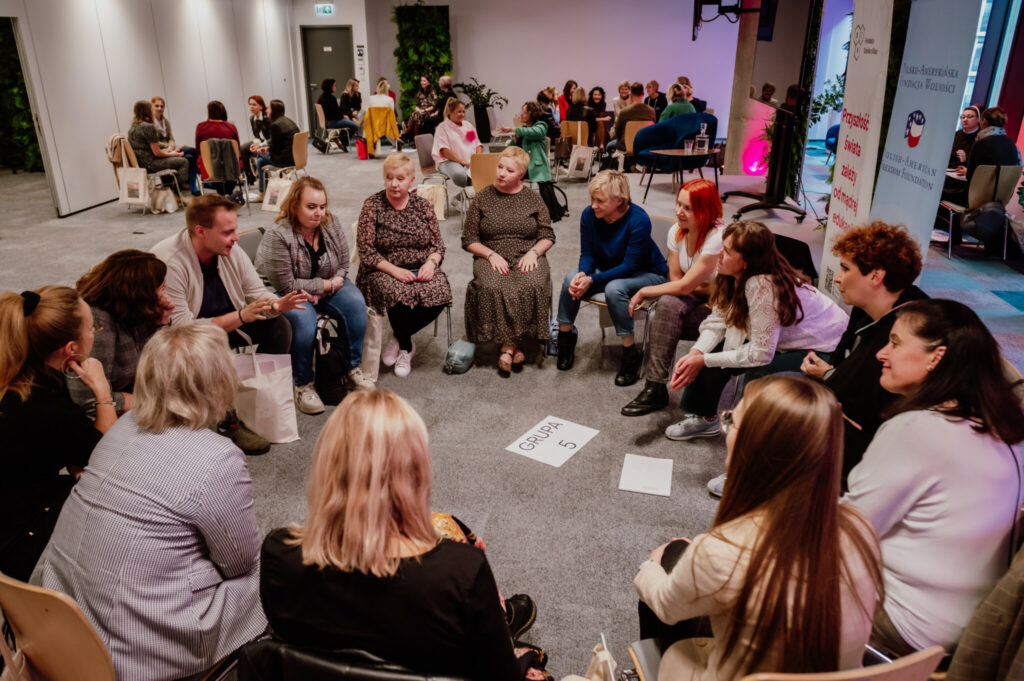School with Class is a comprehensive school development program which helps schools address the most pressing societal issues, currently focusing on building resilience of children and youth.

The School in Class 2024/25 program offers a thorough and research-proven approach with 9 dimensions of intervention:
The well tested and proven model of a whole-school engagement lasts at least one entire school year, with intensive individual mentorship support which allows schools to reflect on their needs and resources and build individual strategies for becoming modern and engaged learning environments that reinforce student’s self confidence, help to build good relationships between peers, prevent bullying and promote digital well-being.
The program additionally supports teachers and directors through on-site training and ready-to-use materials with specific strategies to be applied in the classroom.
Nine dimensions of intervention in the School with Class program:
1. Confidence and self-esteem – self-confidence based on the awareness and realistic assessment of one’s own competences and limitations, strengths and weaknesses,
self-acceptance. Integrity, understood as a consistency of values, judgments and standards of behavior. It transfers into the ability to handle challenging situations on one’s own, to make decisions and deal with their consequences.
2. Commitment and perseverance – consistency in action, motivation to develop passions and interests, capacity of setting realistic goals, perseverance in achieving them, the ability to plan and manage time and to not give up despite failures.
3. Coping and emotional control – awareness of one’s own emotions, recognizing, coping and regulating emotions, using healthy mechanisms of stress management.
4. Taking care of your health – developing health habits: keeping a balanced diet, maintaining a regular physical activity, knowing how to rest and recuperate, taking care of digital well-being (ability to protect one’s privacy online, self-regulation in the use of digital devices).
5. Connection and good peer relations – readiness to participate actively in the groups’ activities and decision-making processes, showing mutual respect and providing assistance when needed, being ready to ask for and accept help. Capacity of building good relationships with both peers and adults. It transfers into a sense of security that comes from close relationships with important others.
6. Empathy – attentiveness to others, understanding and taking into consideration different perspectives and points of view; understanding other people’s feelings and intentions. It transfers into the ability to build bonds in a diverse group, providing support when needed.
7. Open communication – clear and precise expression of thoughts and feelings, ability to listen attentively and to give and receive open and sincere feedback. Constructively managing conflicts and accepting differences in opinions. Open communication allows to build and maintain healthy bonds with others.
8. Contribution and responsibility – recognizing areas of personal influence, initiating action, taking responsibility for achieving team and community goals. This involvement and contribution into making a change helps to build a sense of agency and transfers into a strong sense of purpose and meaning.
9. Curiosity and critical thinking – Cognitive curiosity, the ability to understand complex, non-obvious phenomena, tolerance for ambiguity, seeing cause-effect relationships and correlations, resistance to manipulation.
The School with Class program is run by the School with Class Foundation within the framework of the Polish-American Freedom Foundation’s Resilience Course project, jointly implemented by the School with Class Foundation and the Education for Democracy Foundation.